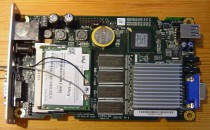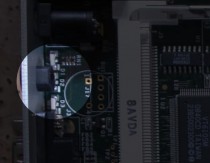The AMD Geode LX800 CPU has an on-chip AES 128-bit crypto accelerations block and a true random number generator. Using this block for encryption and decryption is a lot faster than software implemented algorithms and it unloads the CPU. There are two main purposes where en/decryption is needed:
- Storing files
- Communication over network (IPSEC, OpenVPN, WPA2, ...)
I'll focus on the first point in this article using LUKS (Linux Unified Key Setup).


